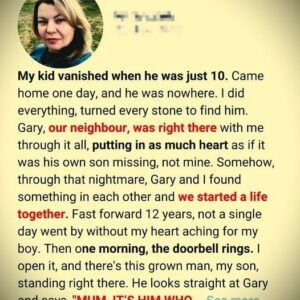Blending households with stepchildren can bring a unique set of challenges, testing patience, love, and boundaries. For one man, the situation became so overwhelming that he felt drastic action was the only way forward. Here’s his story:
In November 2022, his wife passed away, leaving him with three adult stepchildren—ages 21, 22, and 25—who had always made it clear that they did not consider him their parent, despite him being part of their lives for over a decade. Their biological father had retired to the Philippines, and their mother and stepfather had been helping them with housing due to the high cost of living in their city.
While the youngest stepchild was still in school, the other two were employed. After their mother’s death, they stopped contributing to household responsibilities. The man had been generous, charging no rent so they could save money, and covering all household utilities such as power, water, and Internet. He even provided food for the youngest. But when they stopped helping around the house altogether, he had to hire a cleaning lady to manage it. Frustrated, he made the decision to sell the house, noting that its value had appreciated significantly since he bought it, allowing him the option to retire comfortably if he chose to.
The house sold quickly, and he decided to move to his cabin. He gave each of his stepchildren $10,000 and informed them of the sale. They weren’t completely blindsided, as they had noticed the “for sale” sign and the open houses. However, they became upset, accusing him of throwing them out of what they considered their home. Although they had lived there for a significant portion of their lives, they had never treated the place as more than a place to sleep, which deeply disappointed him. He believed their mother would have been disgusted by how they treated him and the home they shared.
The stepchildren pooled their money to rent an apartment, but the man knew they would run out of funds in a year if they didn’t become financially responsible. People supported his decision, pointing out that most parents don’t give their children $10,000 to move out and that the stepchildren had been freeloading for too long. Many commenters agreed that the man had done more than enough for his adult stepchildren by allowing them to live rent-free for so long, and they believed their entitled behavior justified his actions.
They noted that the stepchildren, as adults, had refused to take responsibility for their home or their lives, despite having nearly two years to change their ways. The man’s supporters felt that he had been more than generous by giving them money to help them start their independent lives and that now, they would have to learn how to manage their finances and household responsibilities, or face the consequences of their choices.
Ultimately, blended families face many challenges, and while some navigate them successfully, others, like this man, find that separation is the only path to peace and happiness.





